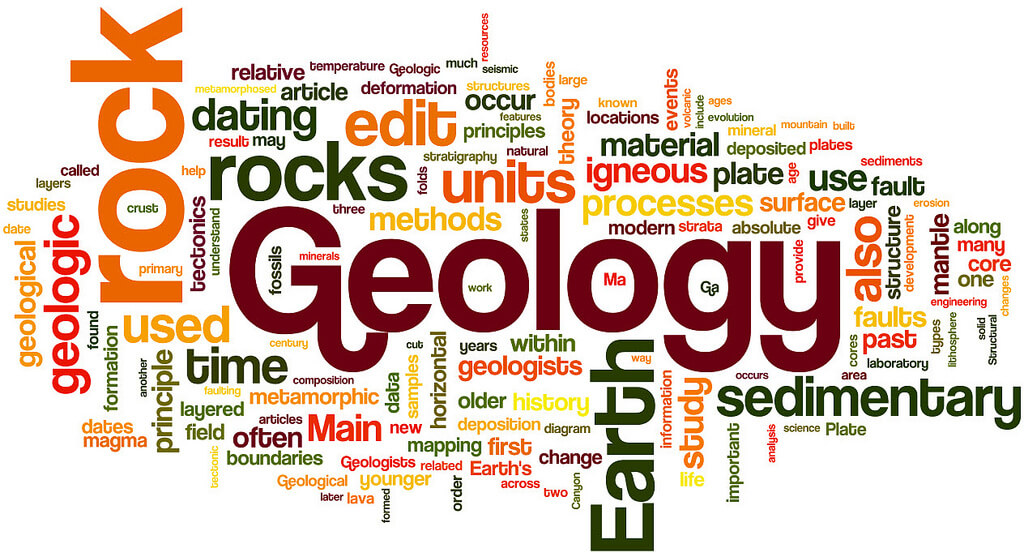Geology is the study of earth and its formation from the beginning till now. But it’s not just that. Geology is a multi-disciplinary subject that has many other fields. Here are some of the other branches of geology that you may want to dive into:
Basic Geology
Physical Geology: The study of earth composition, structure, movements & processes by which the earth’s surface is or has been changed.
Mineralogy: The study of minerals. Minerals are inorganic substances & are integral parts of the rocks that form the crust of the earth.
Petrology: The study of rocks provides us with much-needed information about the composition of the earth.
Structural Geology: the study of the earth’s structural features like folds, faults, joints, etc & their mode & mechanism of formation.
Economic Geology: The study of economic products of earth crusts & their application for commercial and industrial purposes.
Geomorphology: The study of landforms & surface processes.
Geo tectonics: The study of movements of earth crusts & deformation caused by them.
Historical Geology:
It is the study of the origin & evolution of earth & its inhabitant.
Stratigraphy: The study of the origin, composition, proper sequence & correlation of the rock strata.
Paleontology: Greek: Palaios means ancient Ontos means being. The study of fossils i.e. plants and animals in rock beds of past geological periods.
Paleogeography: The study of the past geographic conditions. It is possible to reconstruct the relations of ancient lands and sea and the organism that inhabited them.
Applied geology:
Engineering Geology: The application of geological information to engineering
problems.
Hydrology: The study of surface and subsurface water.
Geophysics: The study of the application of physics in geology which is applicable in subsurface exploration.
Geochemistry: The study of the application of chemistry in geology. It deals with the chemical constituent of the earth, the distribution & migration of various elements in various parts of the earth.
Forest Geology: The application of geologic information to forestry problems.
Agricultural Geology: The application of geologic information to agricultural problems.
Mining Geology: The application of geology in mining & extraction of problems.|
Photo Geology: The geological interpretation of aerial photographs or the study of
satellite photographs
Why Study Geology
There is no one importance of geology. It has many advantages and here are some of the ways studying geology can be helpful for:
- The soils and their vegetation may indicate the type of underlying rock; buildings and walls made of local stone may well be worth observing.
- The study of geology gives first-hand knowledge about the natural environment. E.g.the evaluation of fossils and particle distribution in a sedimentary rock reflects the paleoenvironment.
- The attitudes (Strike, Dip, and Dip direction) existing elsewhere may well be able to walk out what happened on the surface and below the surface.
- Geology is useful for the determination of the location of mines, oils, and natural gas. Satellite scanning is a recently developed method for the location of economically important minerals.
- Folded and crumpled rocks give information of hidden forces.
Also Read:

